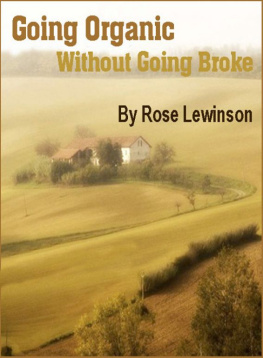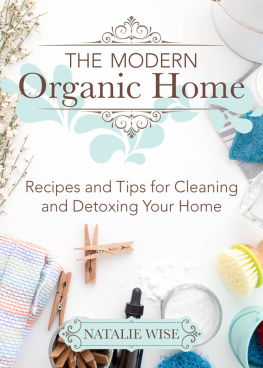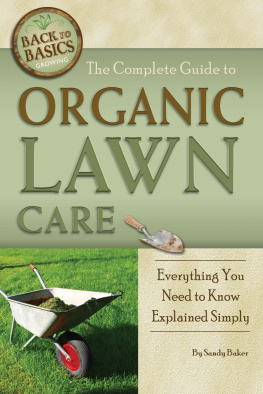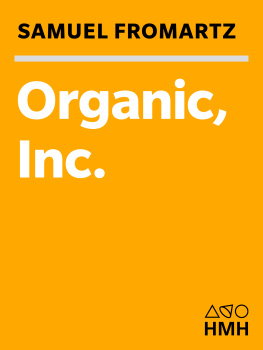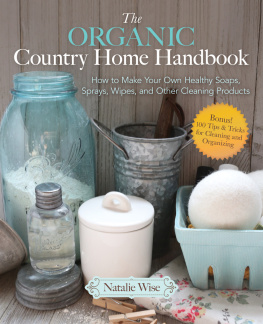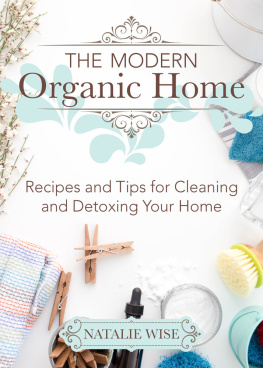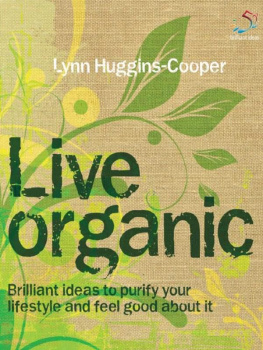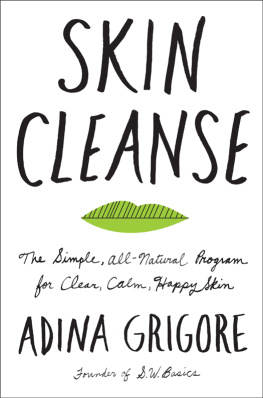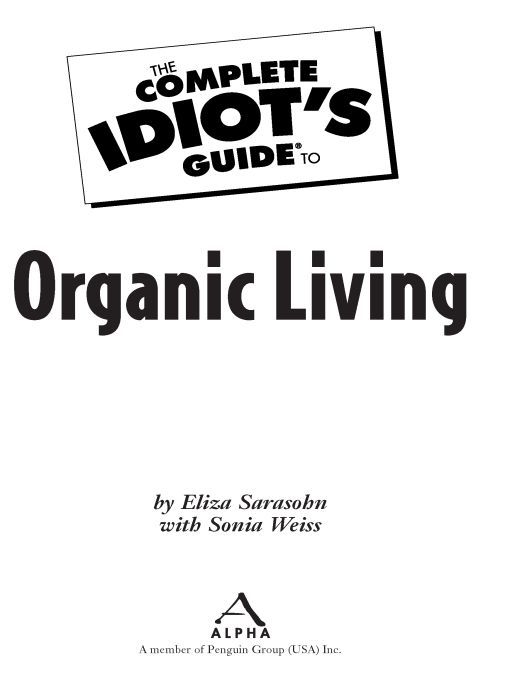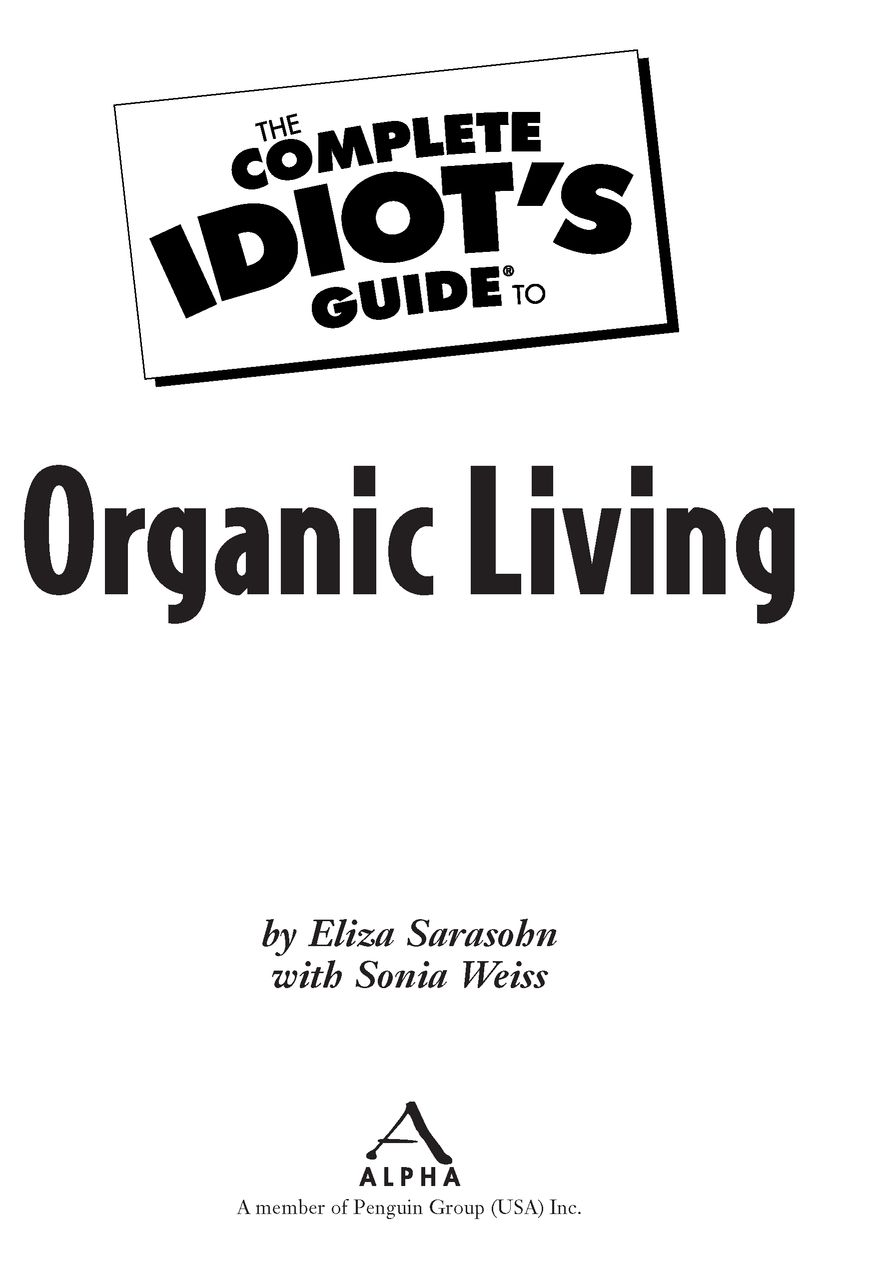Table of Contents
Introduction
Organic living. Ask five people what it means to them, and youll get five different answers. Chances are most of them will be variations on the theme of natural, but maybe not if theres an organic chemist in the group, as the term will mean something completely different to him or herin chemistry, organic means carbon-based, and there are both natural carbon-based substances and synthetic carbon-based substances.
This might seem like a digression from the subject at hand, but it really isnt. We are carbon-based creatures, we live in a carbon-based world. Just about every substance in us and around us is mostly composed of carbon atoms. So, by definition, youre already living organically because, well, we all do.
Concerns about what we carbon-based critters were doing to the carbon-based world around us are what drove the beginnings of what has come to be called the organic movement over a century ago, and they continue to drive what the organic movement is today. While theres no end to the amount of hype surrounding the word organic today, and seemingly no end to how the word itself is usedorganic investing, anybody?at the heart is a basic concern for the health of our planet.
Weve created an extraordinary world, theres no question about that, but many would argue weve done so at great expense. While human innovation has made it possible to live longer and significantly more comfortably than our ancestors did, we live today with dangers they did not. In us and around us are synthetic substances that were not a part of the world even 200 years ago. When they were created, little or no thought was given to health and safety considerations for these substances, or to their impact on the environment; such issues simply werent a concern back then. But they definitely came to be so over the years, and they are especially so now.
Organic living, as its come to be defined today, is a response to these concerns. When you choose to live organically, youre choosing to avoid heavily processed, pesticide-exposed substances and materials in what you eat, in what you put on your skin, and in what you surround yourself with. In so doing, youre also making choices that can have a positive impact on your immediate surroundings, and on the world.
Something as simple as growing your own tomatoes and doing it without artificial chemicals might not seem like much, but here are just a few takes on what the broad view looks like Plucking a tomato from a vine at home eliminates a trip to the grocery store and a carbon deposit. Using a natural fertilizer eliminates the possibility of groundwater contamination from synthetic chemicals. Its one less tomato that a farm worker in China might have had to douse with synthetic herbicides. And the tomato you grew yourself is almost guaranteed to taste better than anything you could find in a grocery store. Plus, theres the simple pleasure of enjoying something you nurtured from a seed.
This, in a nutshell, is what organic living is all about. You might not be a gardener, but there are plenty of other ways to live organically, and youll find the tools to help you make that decision in the pages that follow.
Youll start with learning the basicsthe history of the organic movement, the core concepts and beliefs that have shaped it and continue to do soand then youll make it yours. No matter how you tackle itby eating organic food, avoiding chemicals when you clean, choosing natural fertilizer over the artificial stuff, knitting with organic yarnby choosing all of the above, some of the above, or walking on paths you alone define, youll be working toward creating an existence that resonates with who you are and what you want to be. And at the same time, youll create a healthier future for you, your family, and the planet.
Youll be living organically. And thats a good thing.
Whats in This Book
Do an Internet search with the words organic living and youll get millions of hits. Thats just one indication of the endless information thats out there. One goal of this bookbetter put, the key goal of this bookis to help you sort through it all and figure out what makes sense to you and for you.
In Part 1, The Best Things in Life Are Organic, we look at the history and heritage of organics and the benefits of living organically.
In Part 2, Mmm, Mmm, Organic, we deliver the goods on what organic eating is all about, from finding organic foods to preparing and storing them.
Part 3, Going Organic from the Ground Up, delivers the dirt on what you can do to green up your lawn and garden, from taking your grass off chemicals to growing your own organic fruit and vegetables.
In Part 4, Naturally Beautiful, we cover the health risks associated with the chemicals most often found in health and beauty aids and we give you alternatives to their use, including products you can make yourself.
In Part 5, Organic Fashion and Interiors, youll learn how to make your home and your clothing as eco-friendly as possible.
Extras
Youll find even more information on living the organic life in these sidebars:
The Dirt
Essential tips for greening up your life, plate by plate, product by product, and one organic baby step at a time.
Its Organic
Information, insights, and comments on the organic life.
Take Action
Ready to share what youve learned? This section features actions you can take to speed the growth of the organic movement and spread the organic way of life, in your local communities and beyond.
Toxic
The inside scoop on how to sidestep common pitfalls, read between the labels, and make the healthiest choices for you and your family.
definition
Definitions and explanations for terms and expressions to familiarize you with the wide world of living organically.
Acknowledgments
Special thanks to Sustainable Table (www.sustainabletable.org), a consumer program founded to celebrate the sustainable food movement, for allowing us to reprint organic recipes from their online database.
Additional thanks also go to Leslie Bilderback for her role as the recipe editor on this book.
Special Thanks to the Technical Reviewer
The Complete Idiots Guide to Organic Living was reviewed by an expert who double-checked the accuracy of what youll learn here, to help us ensure this book gives you everything you need to know about living organically. Special thanks are extended to Jolia Sidona Allen.
Trademarks
All terms mentioned in this book that are known to be or are suspected of being trademarks or service marks have been appropriately capitalized. Alpha Books and Penguin Group (USA) Inc. cannot attest to the accuracy of this information. Use of a term in this book should not be regarded as affecting the validity of any trademark or service mark.


